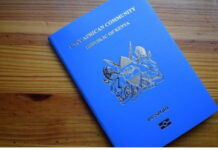The World Health Organization (WHO) has unveiled a bold new initiative aimed at curbing the global rise of chronic illnesses while mobilizing much-needed public revenue. Dubbed the “3 by 35” Initiative, the campaign urges countries to increase real prices on tobacco, alcohol, and sugary drinks by at least 50% by the year 2035 through health-focused taxation.
The move comes as global health systems grapple with the growing burden of noncommunicable diseases (NCDs), including heart disease, cancer, and diabetes, which now account for over 75% of all deaths worldwide. The WHO warns that the consumption of tobacco, alcohol, and sugary drinks is fueling the NCD epidemic.
According to the organization, a one-time 50% price hike on these products could prevent up to 50 million premature deaths over the next five decades.
“Health taxes are one of the most efficient tools we have,” said Dr. Jeremy Farrar, WHO’s Assistant Director-General for Health Promotion and Disease Prevention and Control. “They cut consumption of harmful products and generate revenue that can be reinvested in healthcare, education, and social protection. It’s time to act.”
The initiative sets an ambitious target to raise US$1 trillion in domestic revenue over the next 10 years. Between 2012 and 2022, nearly 140 countries increased tobacco taxes—boosting prices by over 50% and proving the feasibility of large-scale change.
Countries like Colombia and South Africa have already demonstrated success, reporting both reduced consumption and increased revenue after implementing health taxes. However, many nations still offer tax breaks or sign long-term agreements with unhealthy industries, which WHO says undermines public health objectives.
The “3 by 35” Initiative focuses on three key pillars:
- Cutting harmful consumption by increasing excise taxes to reduce affordability of tobacco, alcohol, and sugary drinks.
- Raising domestic revenue to finance essential health and development programs, including universal health coverage.
- Building political support through multi-sectoral alliances involving governments, civil society, finance ministries, and researchers.
WHO is calling on countries, civil society, and development partners to embrace the initiative and commit to smarter taxation that supports health equity and accelerates progress toward the Sustainable Development Goals (SDGs).
The campaign is supported by a network of global partners providing policy guidance, technical expertise, and implementation support to help countries transition toward more self-reliant, domestically funded health systems.
Written By Rodney Mbua



















